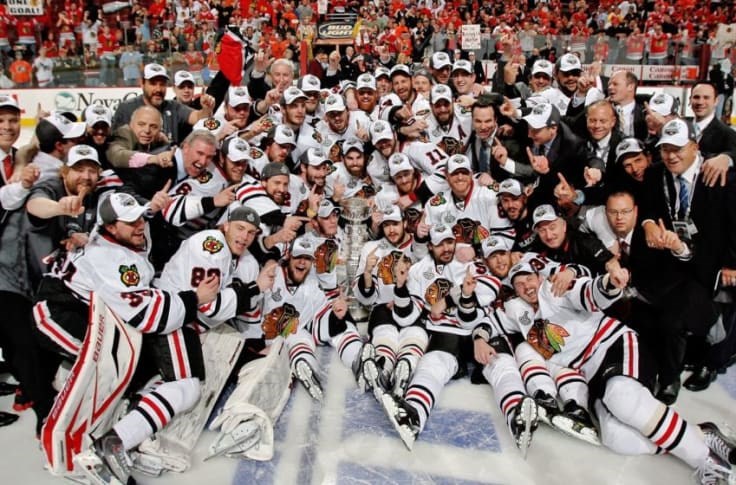Early in October, days before the hockey season officially began, Vegas Golden Knights star goaltender Robin Lehner called out the NHL on the treatment of Jack Eichel by the Buffalo Sabres.
Eichel had missed much of the previous season with a neck injury that required surgery, but things were put on hold by the organization when there was a disagreement between player and team on what the best surgery would be, Eichel wanting artificial disk replacement and the Sabres wanting a disk fusion surgery.
This situation led to Lehner voicing his concerns about how players are treated in the NHL, saying in a tweet, “Better to have pain the rest of their lives … At least they will supply the pain meds … same old [sh**].”
Over the coming days, Lehner’s tweets recounted how his own injuries have been mishandled by the organizations he’s played for, which includes how the constant pushing of pain medications like benzodiazepines and sleeping pills like Ambien led to his own mental health struggles that took years for him to recover from.
This article was originally going to be about how the NHL needs more players like Robin Lehner who speak out and stand up for making the NHL better instead of succumbing to the status quo.
Then the Blackhawks investigation was released, and Kyle Beach came forward and announced that he was the “John Doe” in the Jenner & Block investigation, and once again, and even more so, hockey culture and how organizations mistreat their employees came under fire.
In his time with the team in 2010, Beach was sexually assaulted by the Blackhawks video coach Brad Aldrich, who forced Beach to allow him to perform sexual acts on the 20-year-old hockey player under threat of physical violence with a baseball bat and the threat of ruining Beach’s career, stating, “If you don’t lay down and act like you enjoy it, I’ll make sure you never play in the NHL or walk again.”
After the encounter, Beach reported it to multiple people within the organization who assured him that they would take care of it. They brought up the incident to the Blackhawks management team that included General Manager Stan Bowman, assistant general manager Kevin Cheveldayoff, head coach Joel Quenneville, president of hockey operations John McDonough and senior vice president of hockey operations Al MacIsaac.
In a perfect world, that would have been that, Aldrich would have been fired and charged, and maybe Beach would have been able to start the healing process 11 years ago.
But we don’t live in a perfect world. That never happened, and instead the Blackhawks management team decided to sweep it under the rug and wait until the playoffs were over to address it so they wouldn’t “disrupt team chemistry,” as they were on the verge of their first Stanley Cup in 49 years.
A couple days after the playoffs ended, the Blackhawks management team reported the incident to the head of Human Resources. She then scheduled a meeting with Aldrich and presented him with two options: either the Blackhawks would do a formal investigation into the allegations or Aldrich could resign.
He chose the latter, got paid $20,000 in severance, a $15,000 playoff bonus, got his name on the Stanley Cup and even got to have the Cup for a day in his hometown. Meanwhile, Beach was left to deal with his traumatic experience essentially on his own.
Aldrich went on to work for USA Hockey, multiple universities and a high school where he was arrested in 2013 for criminal sexual conduct involving a minor.
The Blackhawks had proof one of their employees was a predator and they paid him to leave the organization instead of holding him accountable for his actions all because they didn’t want to mess with team chemistry during a playoff run. Pathetic.
In the wake of this investigation being released, Bowman and Quenneville were relieved of their duties as GM of the Blackhawks and head coach of the Florida Panthers, respectively, and Aldrich’s name was crossed off of the Stanley Cup. But that’s not good enough.
The league’s top executives like Commissioner Gary Bettman and head of the players association Donald Fehr also need to be on the chopping block for how the situation was handled.
And while members of the 2010 Blackhawks team like Jonathan Toews and Patrick Kane were still denying they knew anything of the incident at the time while defending Bowman, a few players reached out to Beach to show their support.
One of whom was Robin Lehner, who personally called Beach and had what Beach described in a tweet as a “deep emotional conversation” that “gave me the strength to speak my truth!”
So maybe this is still an article about how the NHL needs more players like Lehner who aren’t afraid to speak out against hockey culture, the NHL, and its outdated and dangerous ways of handling player safety.




